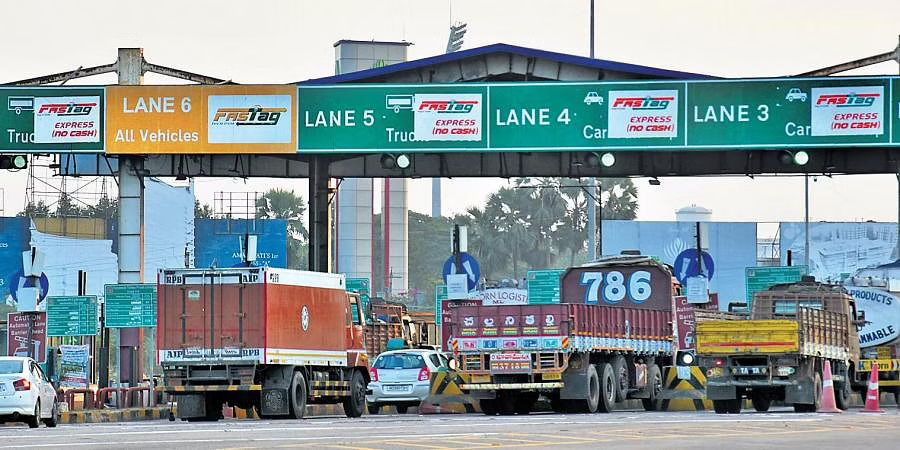“Present democratic setup in Bangla important for India”
On August 23, President Pranab Mukherjee launched Akashvani Maitree, a radio station targeted at the Bengali-speaking audience of India, Bangladesh and other countries. SUCHETA DASGUPTA spoke to Amlan Jyoti Mazumdar, director of the external services division of All India Radio, to get an insight into the kind of shows planned by this new channel.
What is the aim of launching this radio channel?
The aim is to nurture the already-existing warm relationship which we share with Bangladesh and provide a platform, not only for the purpose of enabling cultural exchanges but also for providing information to listeners that they can use. For example, many patients come to India from Bangladesh for treatment. Through our channel, we can tell them about hospitals and doctors and packages. Students can be advised about courses and universities. We can share best practices in disaster management, agriculture, fisheries, locust management, forestry and various other fields, occupations and trades through our programs.
India and Bangladesh not only have a shared history (the national anthem in both countries is written by the bard Rabindranath Tagore), but also common problems which can have a common solution. Even though it sends patients to Bangladesh for specific procedures, it has exceedingly good healthcare facilities. As a result, life expectancy in Bangladesh is better than that in many Southeast Asian countries including India. So, even India has a lot to learn from Bangladesh.

In a nutshell, therefore, Akashvani Maitree will be a channel that would cater to various interest groups; it will not only be a cultural station. Through this channel, South Asia as a region will be highlighted.
What kind of programs will be aired by this channel?
I can share with you information about some of the programs onAkashvani Maitree. There will be one called Ek Mati Ek Sur (One Soil One Melody)—it will air folk music of every Bengali genre as sung on both sides of the border. Both West Bengal and Bangladesh have a combined, very rich folk music heritage comprising various genres—not only baul but also tusu, bhadu, bhatiyali, bhawaiya, keertan, fakiri gaan and more. Then we will have a talk show called Sholo Ana Bangali (Every Bit a Bengali) that will not only feature resident Bengalis but also prominent members of the Bengali diaspora—the probashi Bengali. Another program, Shakaler Adda (Morning Hangout), will feature prominent members of society, say a cardiologist from Dhaka Medical College or an artist from Rongpur. We will also cover the college and university scene in both states through our interactive program—Campuse Adda (Campus Hangout).
A few important names who are to appear on your channel.
Celebrity singers Jasimuddin, Abbasuddin and Runa Laila who are from across the border are equally well-loved in India. Then there is Mac Haque (or Maqsoodul Haque) who has been experimenting with rock sounds in Bengali music since the mid-1970s and is a contemporary of Mohiner Ghoraguli, the pathbreaking Bengali rock band from Kolkata. In fact, there is no bar; you can expect everyone of note to perform on our channel. We are in the process of signing an MoU with Bangladesh Betar. The programs are being livestreamed on airworldservice.org.
What will be the mix of news and entertainment in this channel?
There will be a healthy mix—apart from the regular news bulletins, we have Shongbad Probaho, a 45-minute news and views program. Then we have Upomohadesher Khabor—News From the Subcontinent. For specific audiences, we have Dhakar Chithhi, Kolkatar Chithhi and Delhi Diary.
Bangladesh has been witnessing the rise of fundamentalism and a rapid spread of terrorist activity on its soil over the past few months. Will your channel do anything to address this unfortunate turn of events?
I’m very glad you asked this question. The present democratic setup in Bangladesh is very important for India. Both prime ministers—Sheikh Hasina and Narendra Modi—share a good personal rapport. It is very unfortunate that Bangladesh has become a hub of fundamentalist and terrorist activity. We will definitely do our part. ThroughCampase Adda and Shaptahik Bangladesh Shonglap, a weekly program, we will address these issues.
Tell us a little about yourself. What will be your role in this channel?
I have a postgraduate degree in international relations and another in mass communications. I cleared the UPSC exam and worked in rural development for 10 years. I was also awarded the Nuffic Fellowship by the Netherlands government for studying about community radio and the Hubert Humphrey Fellowship under the Fulbright Program for doing a comparative study of development communications in the US and India. I have been with AIR for 20 years.
Public diplomacy through radio is the main responsibility of the external services division. This includes projecting India as a brand, showcasing its strength as an upcoming world power and a leader of Southeast Asia, spreading our culture. In countries where we don’t have a TV channel or a distributor to downlink our TV programs, radio comes in very handy for this purpose. We have an external broadcast in 27 languages—15 foreign and 12 Indian. Maitree is part of this initiative. I am in charge of planning the programs on Maitree; deciding what kind of program should go in what proportion. In fact, we have a dedicated team for this and I am overseeing its operations.














